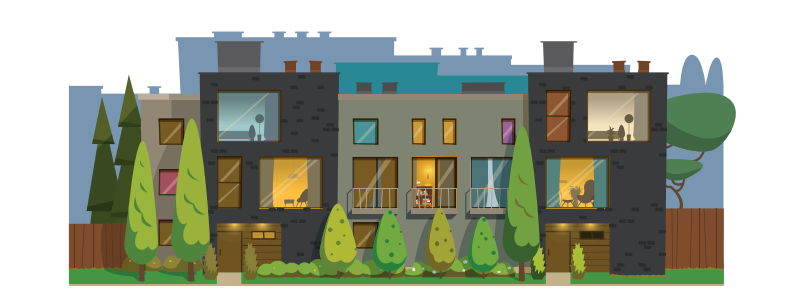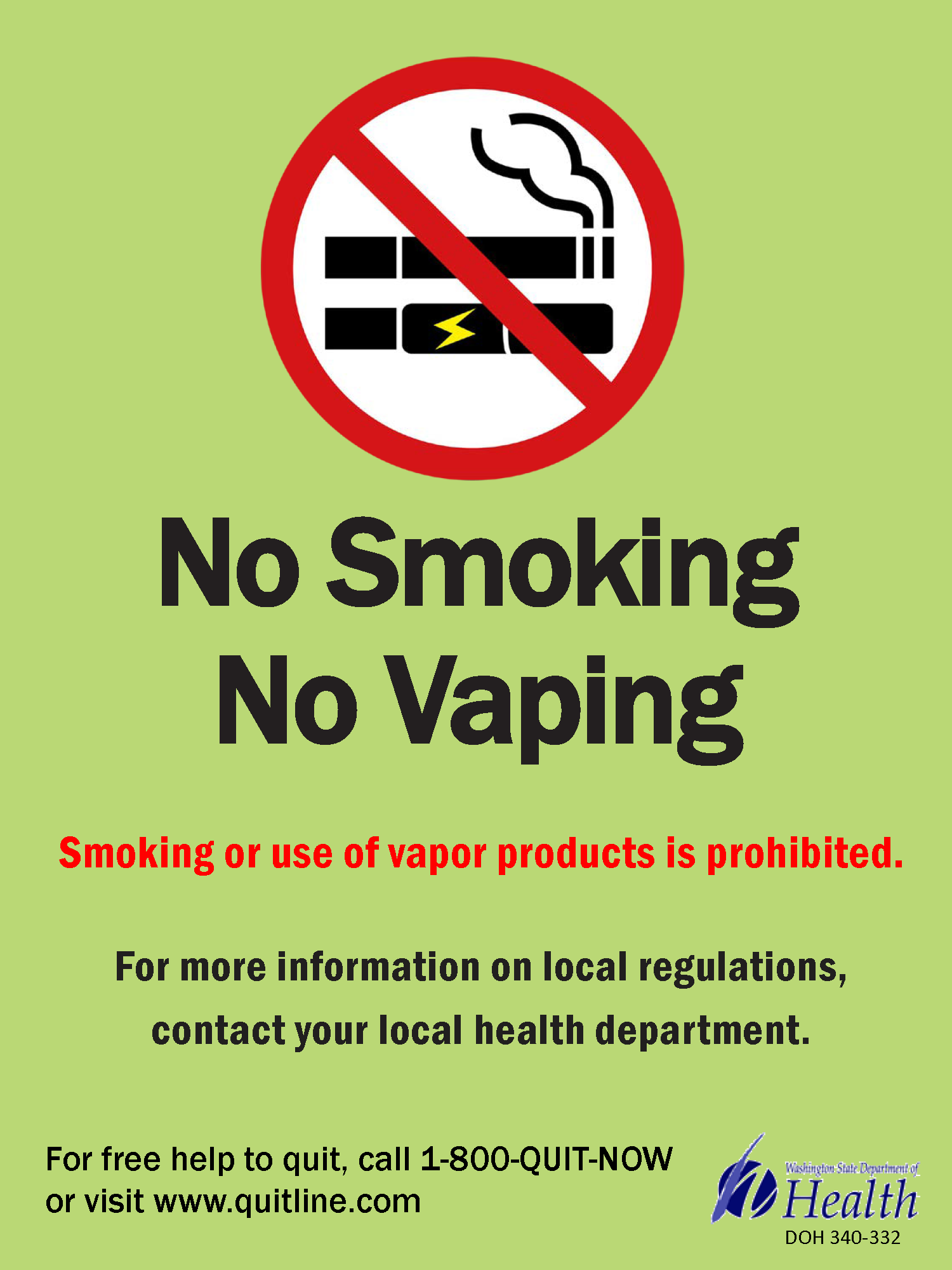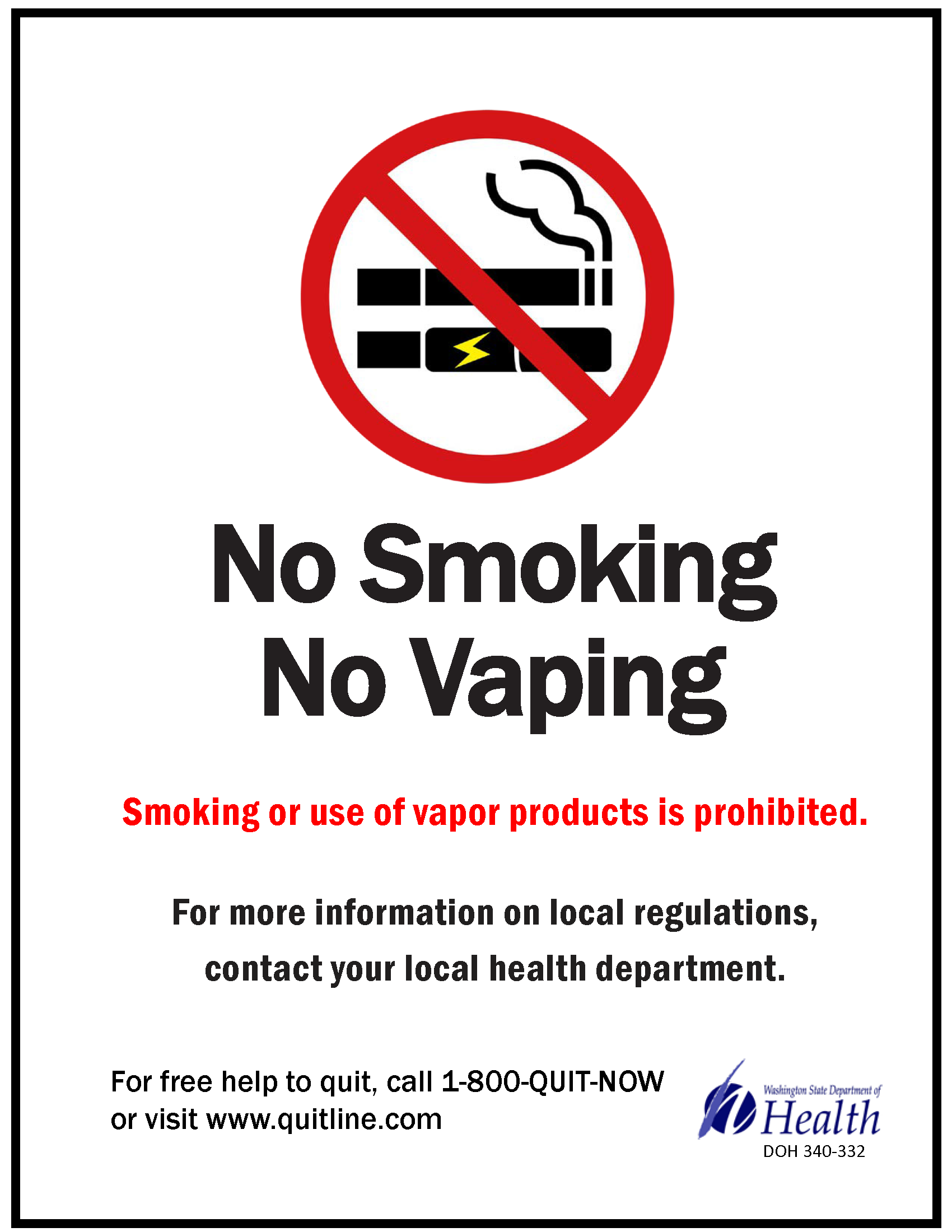What You Can Do About Secondhand Smoke in Your Home
A resource for renters is What You Can Do About Secondhand Smoke in Your Home: A Toolkit for Renters.
Clark County Landlord's Guide to No-Smoking Policies
The Clark County Landlord's Guide to No-Smoking Policies provides guidance on no-smoking policies for both tobacco and marijuana, and includes information from the Central Vancouver landlord survey, with testimonials from local landlords who have successfully implemented no-smoking rules.
Rental housing
Landlords and property owners have many reasons for implementing a no-smoking rule for their properties, including:
- Market demand
- Reduced cleaning and maintenance costs
- Protecting property from fire
- Legal to prohibit smoking inside your rental units
- Protecting the health of their tenants
- Avoid liability
No smoking signage
The "No Smoking No Vaping" signage (click to print PDF) helps promote your property to prospective residents who are looking for a smoke-free apartment home. Signage also reinforces for residents and guests that this is a smoke-free community.
Condominiums and community associations
Public Health supports policies that protect people from involuntary exposure to secondhand smoke in multi-unit housing. More and more landlords have made the decision to put a no-smoking policy in place at their rental properties.
If your homeowner or community association is thinking about adopting a no-smoking rule, below are tools to help you move forward.
These materials are for informational purposes only and are not a substitute for obtaining legal advice. Consult an attorney to assist you in developing a no-smoking rule and amending your governing documents.
These materials were developed in collaboration with the Oregon Smoke-free Housing Project and members of the Oregon Chapter of Community Association Institute in Portland, OR. Many thanks to Minnesota's Live Smoke Free, the Public Health Law Center, and the Massachusett's Smoke-free Housing Project for generously sharing their materials for adaptation.
Secondhand smoke
Secondhand smoke is harmful to both children and adults because it has more than 7,000 chemicals, including at least 70 that can cause cancer according to the American Cancer Society.
Secondhand smoke:
- Increases the risk of heart attack or stroke in non-smokers
- Causes more illness in children, including ear and respiratory infections, and may trigger asthma attacks
- Causes lung cancer in adult non-smokers
For more information about secondhand smoke, contact the Chronic Disease Prevention team.


